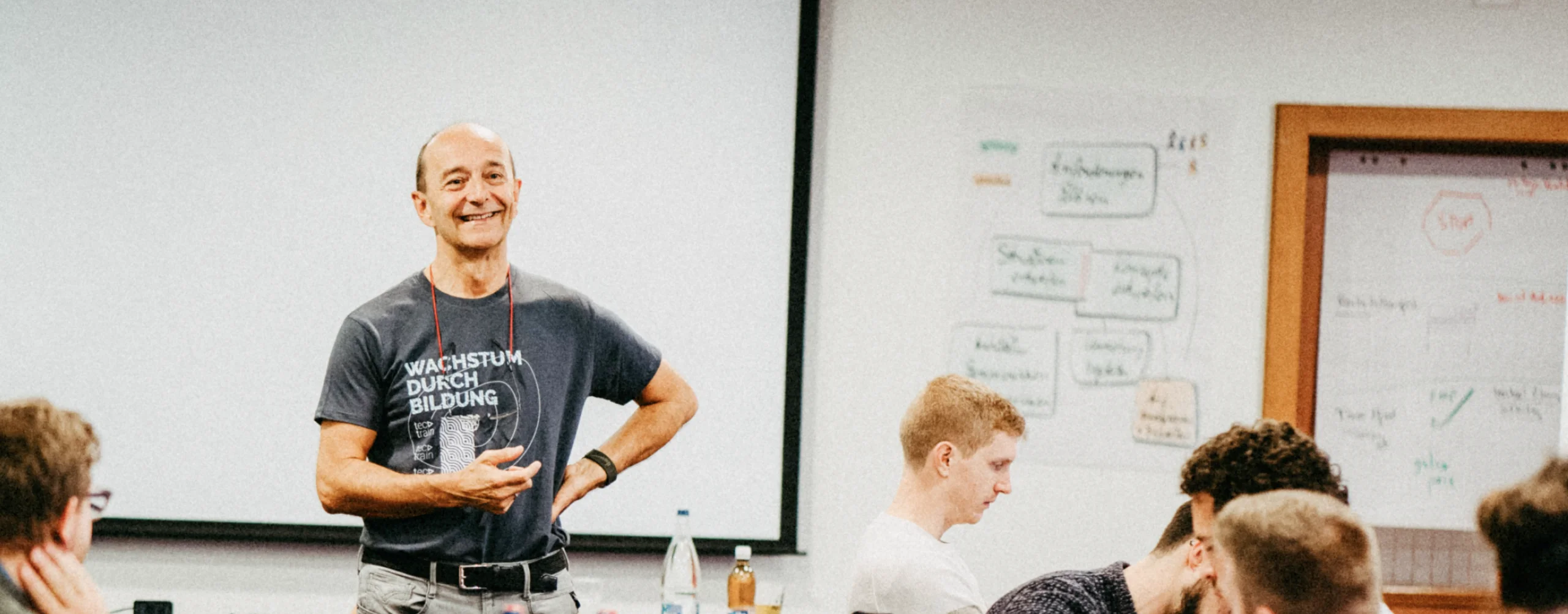How Software Architecture Became a Calling: Kristina’s Perspective on iSAQB Certification
In preparation for jumping into questions, let’s establish the context. Kristina van Cappelle is not only a developer, she’s developing systems at scale for Daimler Truck. With a 10 year history behind her in software, software architect was not a result that came about by accident for Kristina. She noticed relatively early on that developers with a broad perspective, those with a hand in the higher-level decisions, made all the difference when it came to the success of a product.
So, she began asking herself “Why would anyone trust me to design their system?” That led her to the iSAQB certification.
For a complete overview of iSAQB certification, visit our main guide: Top 10 Questions About iSAQB Certification (Answered by Real Architects).
Type of interview: Podcast transcription
Let’s hear Kristina’s unfiltered take on the program, direct from the podcast.
Kristina van Cappelle’s iSAQB Experience
Is iSAQB certification a waste of money and time? Why or why not?
No. In general, no training is a waste of money and time, I think. This is my personal opinion. But the iSAQB is special in the way that it is very well architectured. I mean, it's made by software architectures. Architects, they know what you're doing, trust me. They know you have to start with the theory. That's what you're doing with the foundation layer.
The foundation layer is something you can do in four days. It's not even a question, I think that it should be something that every developer who is taking his job seriously should do. And the advanced one is good in the way that you get the chance to spend a lot of time with people in the industry.
Why did you decide to take the iSAQB certification?
One day I was thinking, Okay, if I want to be an architect, what will they ask me? And they will ask me, why? Why would I trust you to do my software architecture? And not someone else who I don't know has 10 years of experience in that already or anything? But I mean, I cannot have the experience before I get my first project. So I have to start somewhere else. So I was googling about trainings and certifications where, and this was where the ISacob certification popped up.
How long did it take you to prepare for and pass the exam?
I had two exams. The first for the foundation certification was a theoretical exam, for which I didn't prepare more than just take the foundation training. And the second one, with the practical project, it took a lot of time. I won't lie to you. Is like a second job activity for a few months, you really have to want to do it.
Did the certification help you get a salary increase or a better position/job?
Unless your boss tells you he will give you a better job after you get the certificate, I can't answer that for you. But will you get a better job if you apply with that somewhere else? Is a question I would rather answer with yes.
How do employers and clients view the iSAQB certification?
Yes, for me, totally yes, because this is a worldwide known organization which is doing that.
What specific skills did you gain that you couldn’t have learned on the job?
None of my projects had well-documented architecture. Like you enter a project and they throw you some documentation about how to start and where what is, but never, uh, well-structured architecture document.
How applicable is what you learned in real-world projects?
It was very applicable in my point of view, because next time I'm asked to do an architecture, I know which are the most important points. Because I got really valuable feedback from the people who revised my work.
Is the certification more focused on theory or practical application?
The part where you go to trainings and you listen to someone and then you do a bit of exercise is more like... 70% theory and 40% practice. But the real practice comes when you go for the advanced certification.
The project itself is, I would say, 100% practical.
Does iSAQB stay up to date with modern architectural trends like cloud and AI?
I've had the web training, I've had the cloud intro training, and I've had the domain-driven design training.
Do you feel that iSAQB helped you communicate better with stakeholders or developers?
The quality requirements are the core of it. Without making these quality requirements clear within your environment, the stakeholders, and writing them down to present them to the actual team which will develop the product. You cannot say that you have done anything about software architecture.
What’s the biggest difference you noticed in your work after getting certified?
Next time I'm asked to do an architecture, I know which are the most important points... You're supposed to dig and dig and dig until you reach places you didn't think about in the beginning.
Would you say this certification has made you a better architect? How?
Because if you're not already at the software architect position, who will trust you to do that? And in the certification process, you get the chance to actually solve a real-world problem and see if you're having fun doing that.
Do you think iSAQB certification is necessary for software architects, or just nice to have?
If you're already a software architect, you're getting your good salary, you're making successful projects, then you don't need that. You're already there. If it is not the case and you have to go to learn about it and to... I don't know, test yourself, then definitely go for it.
Have you noticed a shift in how your colleagues view you after certification?
Yes. More of them started signing up for the training themselves.
Would you recommend this certification to someone who’s already experienced in the field? Why?
Even if you are experienced, there are so many courses that you could take. I'm absolutely sure there is no one who knows details about each and every of them. And there are constantly new topics coming in where you can specialize yourself.
Final Thoughts: A Developer’s Transition to Architect
Kristina doesn’t romanticize iSAQB. She calls it a rollercoaster experience. The foundation level was straightforward.
The advanced level?
A real challenge.
Kristina van Cappelle, a Full-Stack Developer at Daimler Truck AG, doesn't romanticize the iSAQB certification , yet appreciates it. For her, the undertaking was challenging and sometimes intimidating, specifically the advanced certification. She doesn't shun away talking about it as a “second job activity for a couple of months.” But what pushed her through the process was the desire to really put the ability to own the software architect role to the test.
She discusses less about the marketplace impact of the certification and more about what impacted her from the inside: “It was an eye-opener,” she says, in particular how she considers documentation and quality expectations.
She says, as well, that iSAQB didn’t literally put her title or her salary on her resume, but it gave her something harder to quantify, a better comprehension of what architects truly do and the confidence to say, “I’m ready.”





